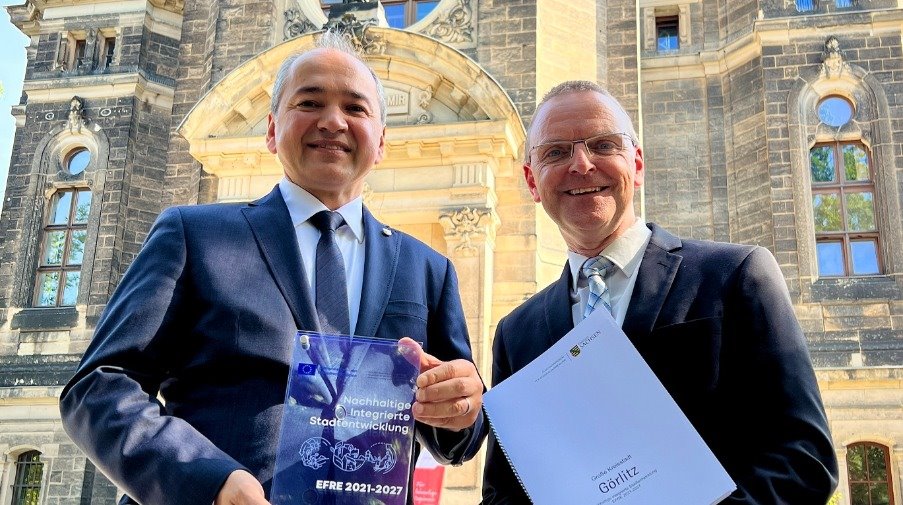Germany is an important player in the European Union (EU), and the EU is indispensable for Germany. In 2022, German exports to the EU accounted for 54.6 percent of total German export trade. This corresponds to a value of around 600 billion euros. Given these figures, it is not surprising that the EU also plays an important role at the regional level, as in Saxony and especially in Görlitz.
Saxony benefits from EU funding
The city of Görlitz recently received a funding decision from the program "Sustainable Integrated Urban Development ERDF 2021-2027". This money is to go towards various projects, including the Südstadtgarten, a skate park and the professional fire department. Since 2000, Görlitz has received a total of 22.7 million euros in ERDF funding. A total of 186 million euros from the EU and the Free State of Saxony is available for disadvantaged urban neighborhoods.
The AfD and the EU
Despite the obvious benefits of EU membership, there are voices calling for the city to leave the EU. Maximilian Krah, the AfD's top candidate for the European elections, has qualified calls for an immediate EU exit, but the party sees the EU and the euro as failed projects.
Why does it matter?
Exiting the EU would mean that funding programs such as the ERDF would no longer be available. This would significantly affect the development of regions like Görlitz. In addition, simplified trade within the EU, which is of great importance to Germany, would be eliminated.
Pro and contra
Pro EU membership:
- Simplified trade
- Access to funding
- Strengthening regional development
Contra EU membership:
- Financial contributions to the EU
- Restricting national sovereignty
Background
The European Union was founded to promote peace and economic cooperation in Europe. Germany has been a member of the EU since its inception and has benefited from membership at both the national and regional levels.
History
The idea of European cooperation dates back to the period after World War II. The foundation stones for today's EU were laid with the establishment of the European Economic Community (EEC) in 1957.










